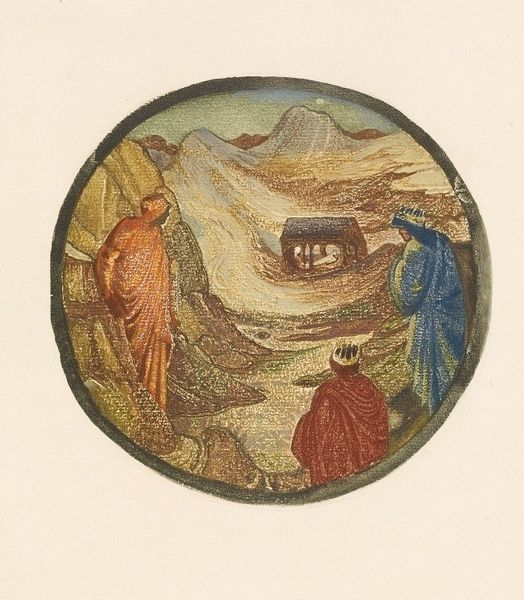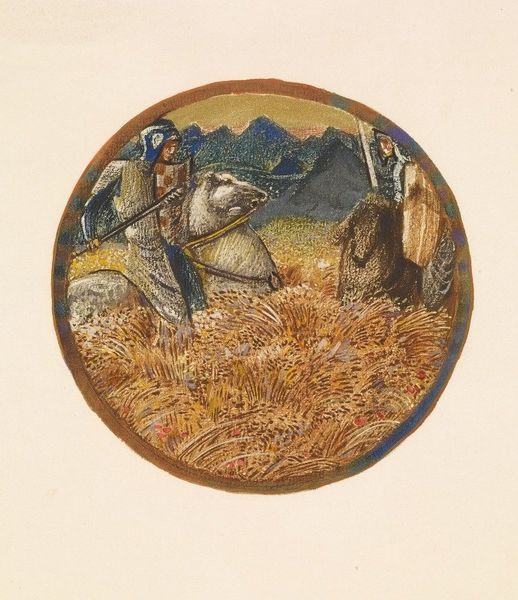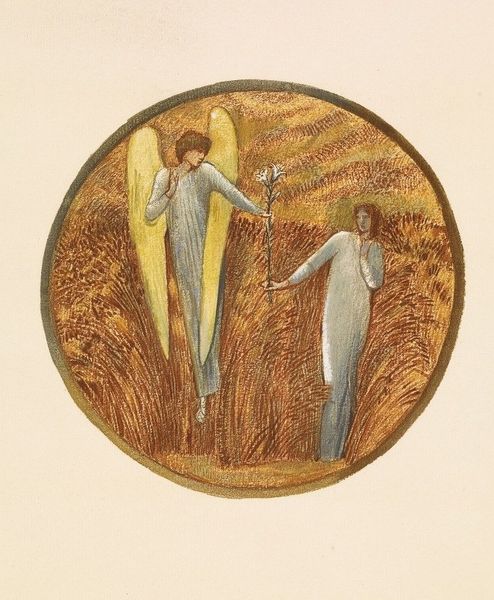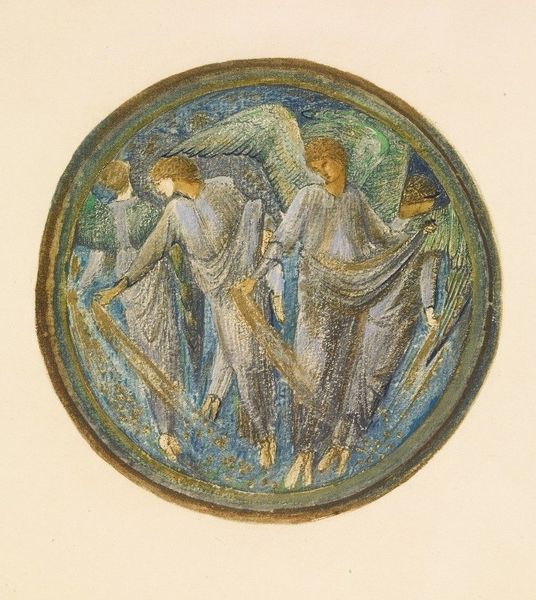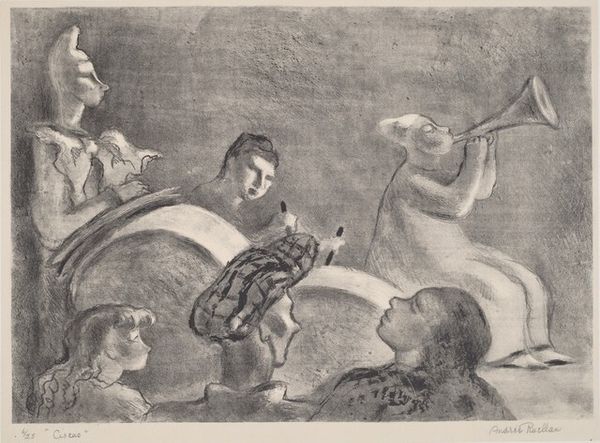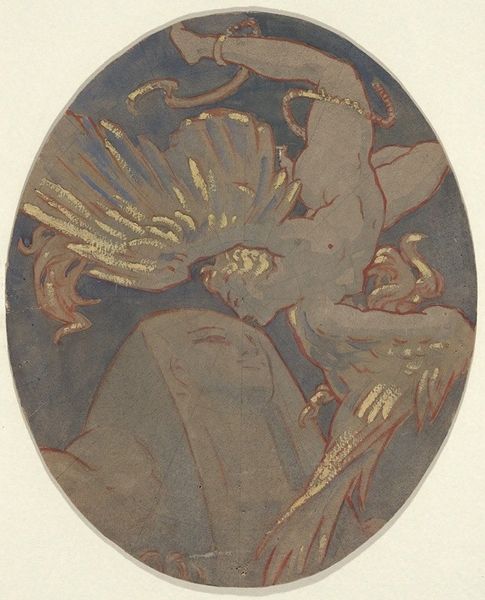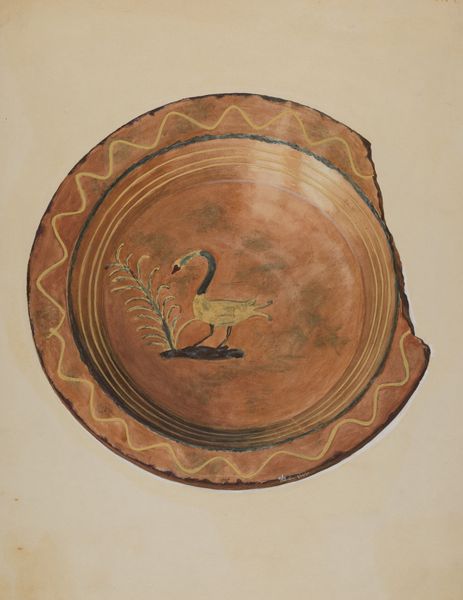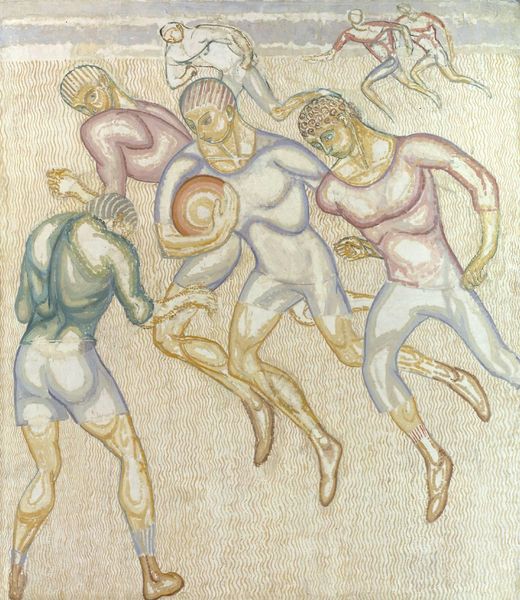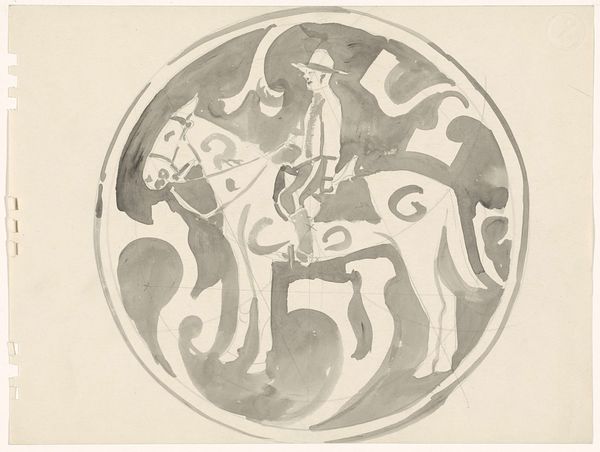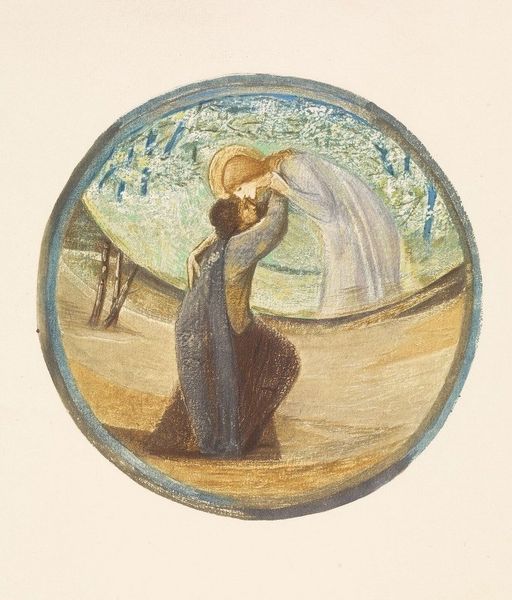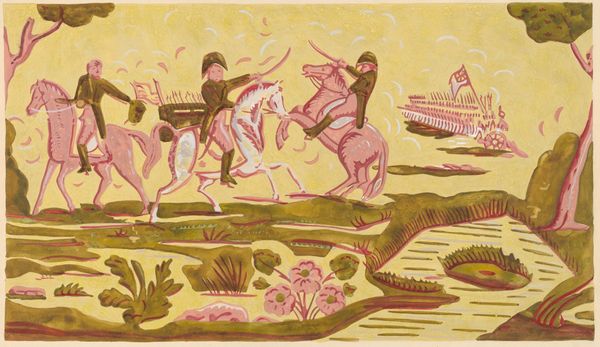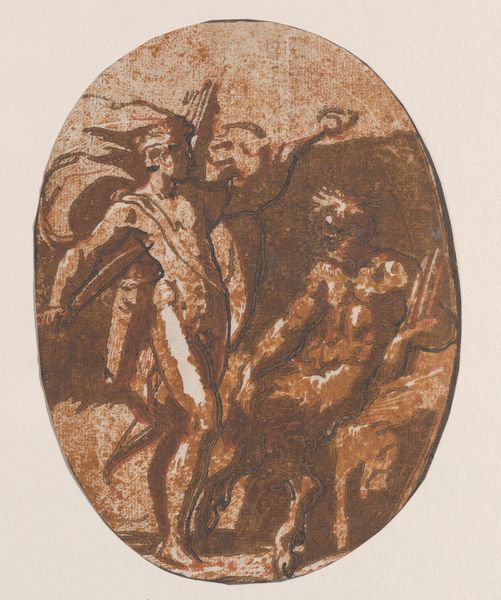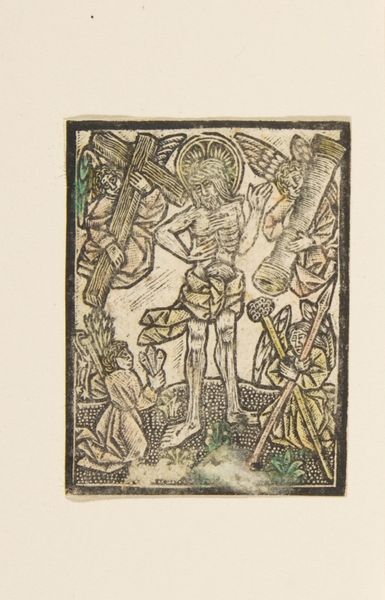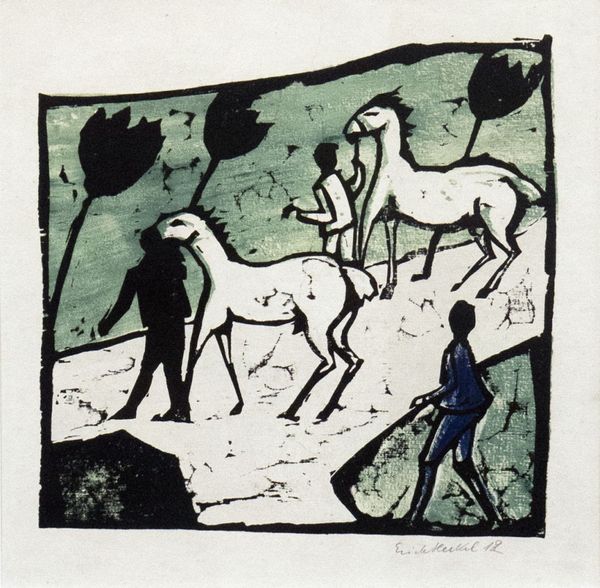
coloured-pencil, watercolor
#
coloured-pencil
#
landscape
#
figuration
#
watercolor
#
coloured pencil
#
pre-raphaelites
#
watercolor
Copyright: Public Domain: Artvee
Editor: This watercolor and colored pencil drawing, titled "Morning Glories" by Edward Burne-Jones, seems to depict figures in a landscape. I find its overall mood somewhat melancholic and ethereal, despite the seemingly uplifting theme. What's your interpretation of this work? Curator: It's interesting you pick up on that melancholy. Burne-Jones, associated with the Pre-Raphaelites, often explored themes of longing and idealised beauty, within a framework of social critique. How might these figures, these… angels, disrupt conventional power structures, or at least, offer an alternative vision? Are they liberating, perhaps, from earthly constraints? Editor: Liberating, that's a fascinating way to put it. I guess their weightless forms and ethereal nature suggests freedom. Do you think the style, maybe this flatness of the picture, contributes to the sense of longing or social commentary you mentioned? Curator: Absolutely. Think about the Pre-Raphaelites' rejection of industrialisation and their desire to return to supposedly simpler times. The flattening effect and the symbolic elements, the way those figures interact, subtly challenge the status quo. Burne-Jones critiques Victorian society by proposing beauty as a form of resistance. Where do you see that resistance emerge most strongly? Editor: Probably in their very existence within what seems to be an ordinary landscape; they feel out of place and somehow revolutionary just by being there. Curator: Precisely. It is this contrast between the ethereal figures and their environment that really encourages dialogue, not just about beauty, but about its power as a tool of expression. This art asks of the viewer to rethink our ideas. Editor: It's insightful to consider "beauty" as a potentially political idea in Burne-Jones' work, thank you for this analysis. Curator: Of course! Thank you, it was valuable for me as well.
Comments
No comments
Be the first to comment and join the conversation on the ultimate creative platform.
